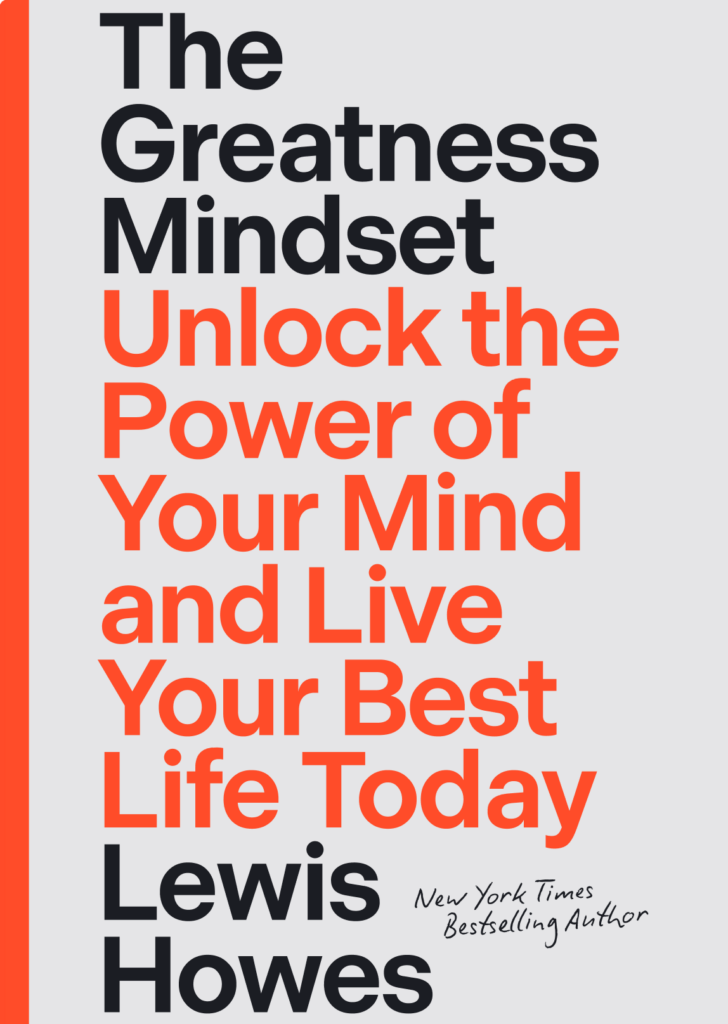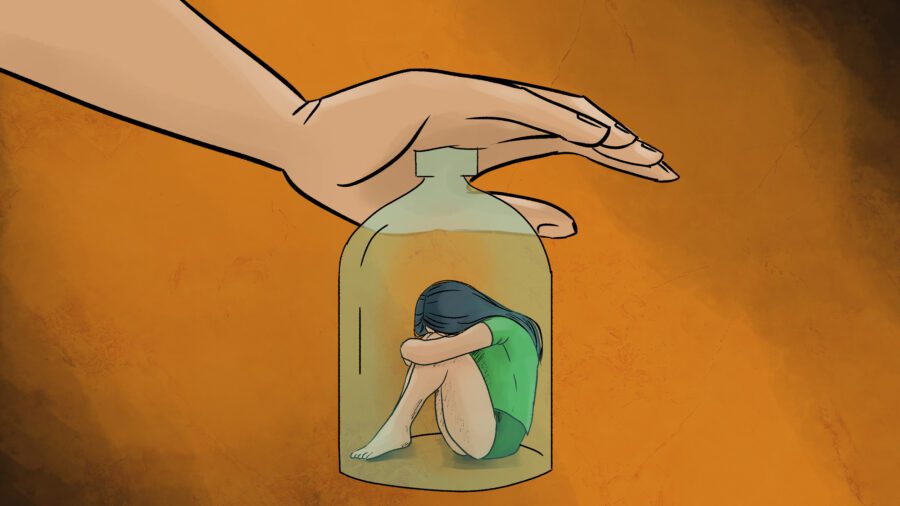
Your Guide to Navigating Family Drama During the Holidays & Mending Relationships
There’s a reason why so many comedies depict families at each other’s throats at holiday celebrations. Most of us deal with some form of family drama during the holidays, so we need a little comic relief. And while conflict is no fun, it’s a universal theme to varying degrees.
Just look at how easily it can happen.
Gather a bunch of related people with complicated histories and a knowledge of each other’s best and worst traits. Put them in a room for a whole night or the same house for a whole weekend. Add in wine. Mix it with overindulgence, lack of sleep, and fatigue after a 50-hour work week. While all may seem well for a while, sooner or later, someone’s well-meaning joke or irritating laugh is just going to get to you.
While holiday gatherings may be notorious for family drama, it doesn’t make it any less stressful when it happens. A fight or bad experience can throw off our day, impact our health, and make our experience less joyful. In the worst case, a truly toxic fight can force us to choose whether to stay in contact or know when to walk away.
Luckily, you can make family gatherings — at least your experience of family gatherings — calmer, smoother, and even more meaningful with the right approach. While you’ll never be perfect, you can hone your conflict resolution and communication skills, understand your own boundaries and triggers, and use conflict as a way to get closer to your family.
Ready to learn more? Let’s get into it!
Focus on Repairing Conflict
The first thing to remember when it comes to family dynamics during the holidays is that conflict is almost always a given. Perfection is impossible, so lower your expectations, take it slowly, and don’t assume something is wrong just because there’s been a dispute in the past (within reason of course).
In fact, conflict is important for building relationships. In a prominent psychological study, researchers found that securely attached (the most healthy attachment style observed) parents and babies are only in sync 30% of the time. Being in sync is another way to say being attuned, which is a reciprocal show of positive emotion, demonstrating two-way understanding. Being out of sync means miscommunicating, misunderstanding, or being in conflict.
The researchers found the other 70% of the time, the infant and caregiver were out of sync, or they were making repairs to these ruptures, which involved smiles, gazes, gestures, laughing, and sounds. They found that repair is critical for development — it helps babies learn to tolerate uncomfortable emotions (being in conflict or out of sync) and how to repair relationships.
Repair is critical for adults too. It’s what builds trust and deeper intimacy. However, when no one knows how to repair effectively, that’s where conflict turns into division. When people don’t communicate after an argument, and when no one is willing to be vulnerable, the rift can drive them further apart rather than bringing them together.
Repair doesn’t have to be complicated. It’s as simple as saying “I’m sorry. How can I make this right?” if you’ve done something wrong, or “Can we start over?” or “I’m realizing that what I said was the wrong thing to say.” It’s about accepting someone’s apology and giving them another chance.
So while you want to minimize the amount of conflict you have for your own peace and happiness, don’t get overly stressed. Learning some basic conflict resolution and communication skills can make all the difference in your relationships.
Be Intentional About Boundaries and Speak Up for Yourself
Some disagreement is normal, but non-stop conflict is never fun. To minimize the possibility of a stressful experience, go into holiday celebrations armed with some simple tools and self-awareness.
Start by defining your boundaries. If you can, try to start this process before the holidays get into full swing so you have plenty of time for self-reflection and meditation. If you can’t do that, set aside some time before the interaction to reflect.
There are all types of boundaries, and there’s no hard and fast rule for setting them. You want to set them because you want to preserve your well-being, sanity, and emotional health. So they’re really to do with what makes you feel respected, calm, and secure, and what doesn’t.
You can have boundaries around what you’re comfortable talking about, what questions you’re comfortable answering, who you want to talk to, who you want to see, and how people treat you. They can be external (things you say or do in order to maintain the boundary) or internal (things you say or don’t say to yourself, or things you do that you don’t let anyone know about, to uphold the boundary).
Examples of How to Set Healthy Boundaries During the Holidays
To determine your boundaries, consider what you will or will not tolerate. Think about past experiences with family members.
Did someone say something out of line? Then you’ll need to think about what you will say or do if they do so again. For example, you might leave the situation if someone is insulting or tell them that if they continue to talk like that, you will end the conversation.
Were you asked questions you didn’t want to answer but did anyway? You may need an internal boundary, where you decide that you have no obligation to answer the question. So if Aunt Sally wants to know your thoughts on the election, and you know that this conversation will only lead to trouble, you can decide within that you don’t have to answer the question. You can simply change the subject instead.
You may also need to blend both internal and external boundaries to achieve a positive result. Maybe your internal boundary is about not taking on someone else’s opinion of something you’re doing.
For example, let’s say you talk about a career dream you have, and your negative brother-in-law launches into a discussion of how unrealistic it is. Your internal boundary might be that you maintain your positive attitude about your career — you don’t let him get to you. Your external boundary might be to change the subject or to tell him that you’d appreciate his support.
Know Your Triggers
Sometimes it just feels impossible not to take another person’s words and actions personally. Intellectually you may know that it’s not about you, but emotionally you might still react as if it is. Those vulnerable spots where you have heightened reactions are known as triggers.
Knowing what upsets you is just as important as knowing your boundaries. What things do your family members say or do that push you over the edge, especially when you’re tired or are not your best self (which can all happen so easily during the busy holiday season!).
Maybe everyone keeps asking when you’re getting married. Maybe you hate it when your mom criticizes your clothes. Or does your older brother’s playful teasing about your career choice start to grind on you when you’ve been trapped in the house for a whole day?
Triggers can range from big to small, and can seem innocuous at first. When we’re tired, overworked, or overscheduled, little things that we’d normally be able to handle can really take us by surprise. So it’s important to have some self-soothing techniques for when that happens.
Learning to regulate emotions is a great tool to have in all areas of life, but especially in our most conflictual relationships. You can use tools like meditation, breathing exercises, walks in nature, or body-based practices to work through emotions. It’s also a great idea to use these techniques as a preemptive measure before you go into a potentially volatile situation.
Learning emotional regulation skills is one of the best things you can do for your family relationships too. If you want to make effective repairs with your family, you’ll want to use any self-soothing emotional techniques you can, so you can return to the situation as your best self.

The Greatness Mindset
Learn the secrets of some of the greatest minds in the world. Unlock the power of your mind and live your best life today.
Learn MoreTake Breaks from Your Family
In order to use whatever tools you have to manage your emotions, you’ll want a little time and space to yourself. Remember that you can always take breaks from engaging with family, whether it’s because you’re triggered or because you just want to pace yourself.
It can be as simple as going to the bathroom to listen to a mini guided meditation, do some deep breathing, or ground yourself. If you’re able to get outside that’s even better — sometimes all you need to recenter yourself is a nice walk under the stars, gazing out over a beautiful landscape, or breathing in some fresh air.
When you take a break, bring yourself back into the here and now. Remind yourself of who you are, what’s important to you, and where you’re going in life. When you engage with family, sometimes it can pull you back into old territory — the things they said at last year’s gathering, the childhood experience you had with them, the future doubts they just reminded you of.
When you can center in the here and now, you can avoid replaying the same cycles over again because you expect the same things to happen.
Remind Yourself That You’re an Adult
Have you ever had the feeling that you regress to your teenage self when you go home for the holidays? Does staying in your childhood bedroom stir up memories, both good and bad? Do you groan and say, “I said ‘I’m coming” when your mom raps on the door a second time?
It’s only natural that we unconsciously revert to our old selves when in our childhood environment. And sometimes, even just having our parents or older family members around can stir up those old dynamics, even in our own homes or neutral places.
One way to combat this tendency is to bring an object or symbol to remind yourself that you’re an adult. It could be a picture of your medical school diploma, a souvenir from the last trip you took, or an amazing performance review you saved in your email.
When you feel yourself regressing and losing your adult self, look at the talisman and let it remind you that you’re an empowered, free adult who can make your own choices.
Join In 200 Million+ On The Journey to Greatness
Keep Up With Your Health Routines
It’s incredibly easy to abandon health routines during the holiday season. You might be indulging in rich foods, nice wine, and long gatherings, leaving little time for yoga and your calming evening routine. But all those indulgences combined with a packed schedule and little sleep can lead to frazzled nerves and short tempers.
When you’re grumpy and sleep deprived, it’s much easier to react thoughtlessly in ways that you’ll regret later.
Now, those indulgences, fun parties, and busy schedules make up some of the most memorable moments of the year. So cut yourself a little slack, even if you do have a few grumpy tiffs with the family. As we know, conflict is inevitable. However, keeping healthy routines in place will make navigating the holidays much easier, and you’ll feel happier and healthier.
Pick a few non-negotiables and stick to them. Maybe you keep the same bedtime as much as possible. Maybe you cut out early from events if it’s a work night. Or maybe you set limits on how much alcohol you drink, and alternate alcoholic drinks with sparkling water (which is great if you like to have something in your hand).
Another great idea is to keep up a healthy diet through meal prep on Sundays, so even on your busiest days, you’ve got healthy meals to nourish you. You might squeeze in a run even during your family visits, which is also an excellent way to take a break. Or, plan for a family hike or walk, so you can spend time together while staying fit.
Focus on the Good During Family Gatherings
Want to know the best way to get past conflict?
Spend quality time with the person you normally clash with by just having fun, enjoying yourself, and playing together. Maybe it’s video games, an afternoon hike, cooking together, or playing sports in the backyard. Making memories together after you’ve been in conflict makes the connection that much more special.
The more positive experiences you have with someone, the more you’re investing in the relationship. As you build trust and connect with each other, you build intimacy which means it’s that much easier to repair when you inevitably have future disagreements.
And if you want to truly solidify your relationship, do positive things for them and with them throughout the year, whether it’s writing a letter, following them on social media, or making an effort to remember their important life events.
You Can Heal Family Drama and Cultivate Positive Relationships
Family drama is at the center of countless holiday movies and jokes, so rest assured, it’s a completely normal phenomenon. Still, you don’t want it to ruin your holidays, harm your health, or lead to ruptured connections that never get resolved.
Luckily, there’s never been so many tools available to manage difficult emotions and situations. With a little self-awareness, a willingness to be vulnerable and communicate, and a positive attitude, you can make your holiday season more calm, enjoyable, and even more meaningful than you ever have.
Here’s to achieving greatness and effectively navigating family drama during the holiday season!
Greatness Authors
Greatness Authors is a collection of writers, thinkers, curiosity experts, and students of the world who are committed to bringing you the most up-to-date, impactful, and inspiring information surrounding Greatness topics.

How to Have a Healthy Romantic Relationship Even if You Share Different Beliefs

13 Tips to Help a Parent Transition into Assisted Living with Care & Respect

Take Your Power Back: 9 Subtle Signs Your Partner Is Gaslighting You

Apologizing 101: How to Apologize from the Heart & Mend Your Mistakes Without People Pleasing

The Ultimate Guide to Finding “the One,” According to Relationship Expert Stephan Speaks










